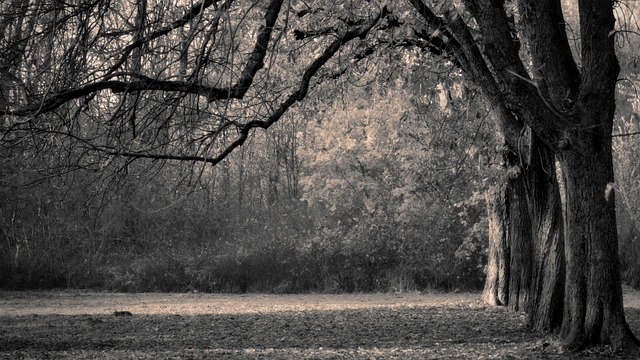Traditional funerals in Albury Wodonga are deeply rooted in cultural and religious traditions that reflect the community's shared values. These ceremonies have evolved over time, incorporating elements from various immigrant groups and religious organizations since the establishment of cemeteries and funeral homes in the 19th century. Today, they offer a blend of historical practices with personal touches, allowing families to celebrate the individuality of their loved ones while maintaining the integrity of established local customs. These funerals are characterized by a series of rituals that honor life's natural cycle and the enduring legacy of Albury Wodonga, providing solace to families in their time of grief. Planning a traditional funeral involves choosing a reputable funeral home, selecting appropriate religious or cultural rituals, and personalizing the service to reflect the deceased's beliefs and values. The process is supported by local resources and professionals who guide families through the decisions necessary for a respectful and dignified farewell that resonates within the community, ensuring a meaningful tribute that upholds both tradition and individuality in Albury Wodonga.
explore the enduring tradition of funerals in Albury Wodonga, a region steeped in history and cultural significance. This article provides a comprehensive overview of what to expect from a traditional funeral service within this community, offering valuable insights into planning such a service in Wodonga. Delve into the historical evolution of funeral practices specific to Albury Wodonga, understand the key elements that define a traditional funeral, and learn how these services reflect the local culture and the role of religion. We will also discuss how traditional funerals remain relevant today, explore the benefits of choosing this option, and offer guidance on personalizing a service to honor a loved one. Additionally, we compare traditional and modern funeral services to assist families in making an informed decision that aligns with their needs and beliefs. This guide aims to support individuals and families in understanding the costs, traditions, and options available for arranging a traditional funeral in Albury Wodonga, ensuring a meaningful and respectful farewell.
- Historical Evolution of Funeral Practices in Albury Wodonga
- Components of a Traditional Funeral Service in Albury: An Overview
- Steps to Plan a Traditional Funeral in Wodonga: A Guide for Families
- The Significance of Traditional Funerals in Albury Wodonga's Cultural Context
- Comparing Traditional and Modern Services: Making an Informed Decision in Albury Wodonga
Historical Evolution of Funeral Practices in Albury Wodonga

The historical evolution of funeral practices in Albury Wodonga reflects a tapestry of cultural influences and societal shifts over time. Traditional Funerals in Albury Wodonga have their roots in the practices brought by early European settlers, who intertwined their own customs with those of the indigenous people of the region. As the community grew, these traditions were adapted and evolved, influenced by new waves of immigration, religious beliefs, and the changing social norms. The 19th century saw the emergence of formalized funeral practices, with the establishment of cemeteries and funeral homes in Albury Wodonga, marking a departure from previous home-based burials.
In the following centuries, Traditional Funerals in Albury Wodonga continued to adapt, incorporating elements from various religious denominations and fraternal organizations that shaped local traditions. The 20th century brought standardization to funeral services, with set protocols and rituals becoming the norm. Today, while the essence of these traditions remains, there is a growing trend towards personalization and inclusivity, allowing families to infuse their own cultural or personal elements into the service. This blend of historical continuity and contemporary individuality ensures that Traditional Funerals in Albury Wodonga not only honor the deceased but also reflect the evolving cultural landscape of the region.
Components of a Traditional Funeral Service in Albury: An Overview

In Albury Wodonga, traditional funeral services encompass a series of solemn and meaningful rituals that have been passed down through generations, offering a profound way to honor and mourn the deceased. These services are deeply rooted in the community’s cultural and religious practices, providing comfort and closure to grieving families. A typical traditional funeral in Albury Wodonga begins with the preparation of the body, often accompanied by vigils or wakes where family and friends can gather to share memories and offer their condolences. This is followed by a funeral ceremony, which traditionally takes place in a church or chapel and includes a religious service led by a clergy member. The eulogy, a heartfelt tribute to the deceased’s life, is a key component where stories, achievements, and personal anecdotes are shared.
Following the ceremony, a procession escorts the body to its final resting place, which may be marked by a graveside service. This final goodbye often includes prayers, hymns, or readings, and is a moment of reflection and farewell. The burial rites are an integral part of the funeral tradition in Albury Wodonga, symbolizing the transition and respect for the natural cycle of life. Family members typically participate in the funeral proceedings, contributing to the service by selecting hymns, readings, and even the interment method, ensuring that the ceremony reflects the beliefs and values of the deceased. Traditional funerals in Albury Wodonga honor the legacy of the individual and the continuity of cultural heritage, making them a revered and enduring choice for many families in the region.
Steps to Plan a Traditional Funeral in Wodonga: A Guide for Families

When planning a traditional funeral in Wodonga, families are often guided by both personal and cultural expectations. The process begins with selecting a reputable funeral home that specializes in traditional funerals within Albury Wodonga. It is advisable to engage with a funeral director early on to discuss options, as they provide valuable insights into the local customs and available services for traditional funerals in Albury Wodonga. The director will assist with making necessary arrangements, including the date and time of the service, selection of the deceased’s final resting place, and coordination of the ceremony’s key elements such as eulogies, music, and readings that reflect the life and values of the deceased.
Families should consider the significance of religious or cultural rituals that are to be incorporated into the service. This may involve choosing a clergy member or celebrant, selecting hymns or music significant to the deceased, and possibly preparing specific elements like a funeral program or memorial keepsakes. Additionally, decisions regarding the type of casket, flowers, and the layout of the funeral service must be made. It is essential to discuss these choices with family members to ensure that the funeral truly honors the deceased’s wishes and reflects their legacy within the community. Throughout this process, families should also consider the emotional aspects of planning a traditional funeral in Wodonga, as it can be both a healing and comforting experience for those left behind. Planning ahead and understanding the costs involved will help alleviate some of the stress associated with arranging a funeral. By utilizing local resources and engaging with knowledgeable professionals, families can navigate the steps to plan a traditional funeral in Wodonga with dignity and respect, ensuring that the service is a fitting tribute to their loved one.
The Significance of Traditional Funerals in Albury Wodonga's Cultural Context

Traditional funerals in Albury Wodonga hold a profound significance that extends beyond the mere act of bidding farewell to the deceased. They serve as a reflection of the community’s shared values and cultural heritage, providing a framework for mourning practices that have been passed down through generations. These services are steeped in rituals and ceremonies that resonate with the local populace, offering a sense of continuity and tradition that is deeply rooted in the social fabric of the region. The customs associated with traditional funerals here often incorporate elements from various religious beliefs and cultural backgrounds, creating a tapestry of respect and remembrance that is uniquely Albury Wodonga’s. The community gathers to support one another, not just in grief but also in shared cultural experiences, which is central to the region’s identity. This communal aspect underscores the importance of tradition and collective memory, ensuring that each funeral service honors both the individual who has passed and the collective history of the community as a whole. The significance of these traditional funerals lies in their ability to connect families across generations, providing solace through familiar rituals and a shared understanding of loss and remembrance within the cultural context of Albury Wodonga.
Comparing Traditional and Modern Services: Making an Informed Decision in Albury Wodonga

When contemplating the farewell rituals for a loved one in Albury Wodonga, comparing traditional and modern services offers a nuanced decision-making process. Traditional funerals in Albury Wodonga often involve religious ceremonies, casket burials, and mourning practices deeply rooted in the region’s cultural heritage. These services provide a sense of continuity with past generations, allowing families to honor their deceased in a manner consistent with longstanding community values and beliefs. The familiarity and comfort derived from traditional rituals can be profoundly healing, offering a structured environment to process grief communally.
On the other hand, modern funeral services in Albury Wodonga present more flexible options, often emphasizing personalization and individual expression. They may include secular ceremonies or blended religious and non-religious elements, catering to diverse cultural and familial backgrounds. Modern funerals can take place in various settings, from traditional funeral homes to natural landscapes, allowing for a more unique and tailored farewell. Deciding between traditional and modern services involves weighing the importance of cultural significance against personal preferences, family traditions, and practical considerations such as cost and logistics. Ultimately, an informed decision respects both the deceased’s wishes and the emotional needs of those left behind, ensuring a meaningful and fitting tribute that reflects the values of Albury Wodonga’s vibrant community.
In concluding our exploration of funeral traditions in Albury Wodonga, it is evident that the region’s approach to marking the end of life has been shaped by a blend of historical practices and cultural influences. Traditional funerals in Albury Wodonga continue to be a meaningful and widely embraced rite, reflecting the community’s deep-rooted values and respect for heritage. These services not only honor the deceased but also provide comfort and closure to grieving families. With a comprehensive understanding of the components involved, from planning to personalization, families in Albury Wodonga are well-equipped to make informed decisions that align with their needs and beliefs. The significance of these traditional practices is underscored by their ability to bring together individuals during times of loss, fostering collective healing and remembrance. As the historical overview demonstrates, the evolution of funeral customs in Albury Wodonga has been a testament to the region’s resilience and adaptability, ensuring that traditional funerals remain a relevant and integral part of the local cultural landscape. Whether one chooses a traditional service out of personal preference, familial tradition, or spiritual beliefs, it is clear that these practices continue to hold a special place in the hearts of the Albury Wodonga community.
